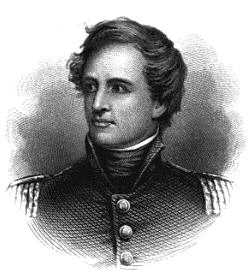
George Croghan was an American soldier who was a recipient of the Congressional Gold Medal.
Alexander White was an early American lawyer and politician in the present-day U.S. states of Virginia and West Virginia. He served in the House of Burgesses, the Virginia House of Delegates (representing Frederick County and later Berkeley County. During the American Revolutionary War, White facilitated the release of Quaker and Hessian civilian prisoners held by patriots. White also participated in the Virginia Ratifying Convention and became the northwestern Virginia district's inaugural member in the United States House of Representatives. United States President George Washington appointed White one of the commissioners responsible for the planning and construction of Washington, D.C..
John Johns Trigg was an American planter and politician from Bedford County, Virginia who served in both houses of the Virginia General Assembly after fighting as a Virginia militiaman in the Revolutionary War, then served in the U.S. Congress from 1797 until his death.
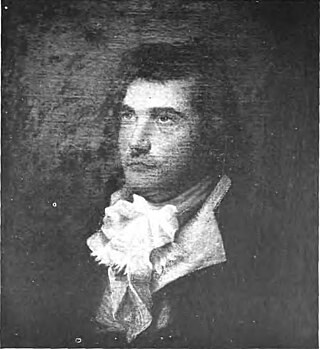
Abraham Bedford Venable was a Virginia lawyer, planter and politician who served in the U.S. House of Representatives and briefly as U.S. Senator, as well as in the Virginia House of Delegates.

Robert Brooke was a Virginia planter, soldier, lawyer, and politician who served as the tenth Governor of Virginia as well as in the Virginia House of Delegates, and as Attorney General of Virginia at the time of his death.
Joseph Neville Jr. was an American soldier, planter and politician from Virginia. In addition to military service during the American Revolutionary War and War of 1812, Neville represented Hampshire County in the Virginia House of Burgesses, several of the Virginia Revolutionary Conventions and in the House of Delegates during the American Revolutionary War. Fellow legislators twice elected him to the United States House of Representatives, where he served from 1793 until 1795. He died at the age of 85 in what became Hardy County during his lifetime.
Abram Trigg was an American planter, lawyer and politician who represented Montgomery County, Virginia in the Virginia Ratifying Convention and U.S. House of Representatives (1797-1809) after fighting with the Virginia militia in the Revolutionary War.
William Fitzhugh Gordon was a nineteenth-century, lawyer, military officer, politician and planter from the piedmont region of Virginia.
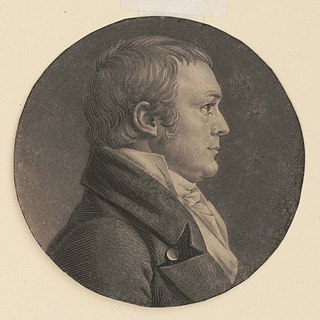
Thomas Griffin was an eighteenth and nineteenth century politician, planter, lawyer and judge from Virginia.

John Smith was a Virginia planter and politician who served in both houses of the Virginia General Assembly as well as the United States House of Representatives.
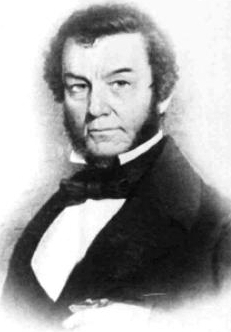
Charles Mynn Thruston was a career U.S. Army officer who retired to Maryland where he became a farmer and politician, then returned to service as a brigadier general in the Union Army during the American Civil War. He served as the mayor of Cumberland, Maryland, from 1861 to 1862.
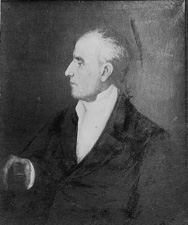
Buckner Thruston was an American lawyer, slaveowner and politician who served as United States Senator from Kentucky as well as in the Virginia House of Delegates and became a United States circuit judge of the United States Circuit Court of the District of Columbia.

John Tyler Sr. was an American lawyer, planter, politician and judge who served in the Virginia House of Delegates and became 15th Governor of Virginia and later United States district judge of the United States District Court for the District of Virginia. He was the father of U.S. President John Tyler.

Peter Johnston Jr. was a Virginia military officer, lawyer, politician and judge. He was raised in Prince Edward County, which he represented for many terms in the Virginia House of Delegates; he also served as that body's speaker between 1805 to 1807. During the last two decades of his life, Johnston served as judge of the southwest Virginia Circuit and resided in Abingdon.
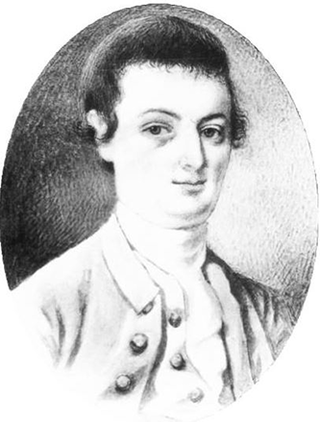
Joseph Prentis was a Virginia politician. He represented Williamsburg in the Virginia House of Delegates, and served as that body's Speaker from 1786 until 1788. From 1788 until his death, Prentis was a judge in the General Court of Virginia.
Thruston is a surname and may refer to:

Robert White was a distinguished early American military officer, lawyer, judge, and politician in the U.S. state of Virginia.

Charles Hill Carter was a Virginia planter who represented Lancaster County in the Virginia House of Burgesses (1758–1775) and all five of the Virginia Revolutionary Conventions, and also sat on the first Council of State in 1776.
Thornton Buckner was a Virginia planter, military officer and politician in Fauquier County, Virginia, which he represented in the Virginia House of Delegates for many terms before moving westward across the Appalachian Mountains to Kentucky, where he lived in Green County, and died in Taylor County decades after its creation from Green County.
John Tayloe Corbin was a Virginia planter and politician who represented King and Queen County in the House of Burgesses. The son of powerful planter Richard Corbin, a member of the Governor's Council, he was likewise a Loyalist during the American Revolutionary War, but remained in Virginia. He was named after his maternal grandfather John Tayloe I.











